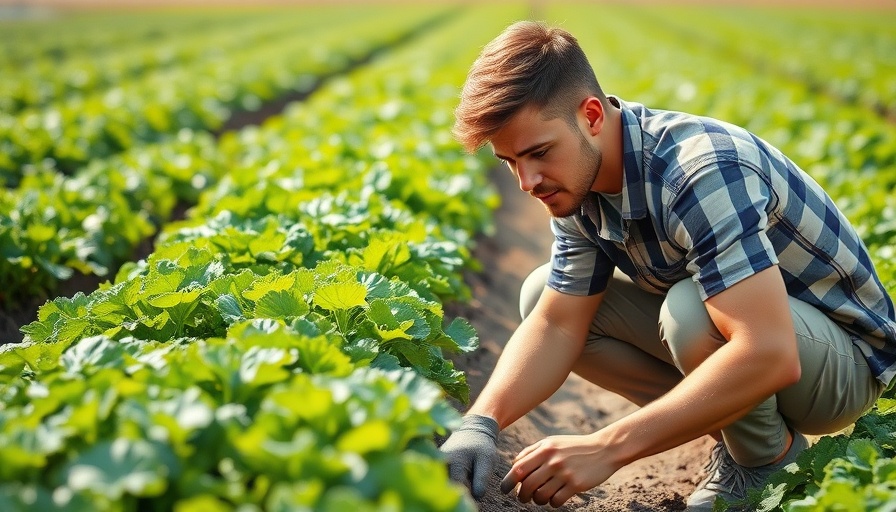
Growing Your Own Organic Garden: A Vital Choice for 2024
As we step into 2024, cultivating an organic garden has become more important than ever. Amidst global uncertainties and the pandemic's lingering effects, having access to fresh, non-GMO food directly from your garden is invaluable for both your health and peace of mind. While creating an organic space may seem daunting, with the right strategies, anyone can embark on this rewarding journey.
Find the Perfect Spot – Inside or Out
The success of your organic garden starts with location. If you have a spacious backyard, you're in luck! However, urban dwellers shouldn't lose hope—think creatively about your space. Indoor growing setups are now more accessible, allowing you to transform any corner of your residence into a thriving garden. Consider using growing lights and organized containers to maximize light exposure and efficient use of space.
The Importance of Quality Compost
A healthy garden starts with nutrient-rich soil. Investing in high-quality compost might seem pricey initially, but it pays dividends as your plants thrive and produce bountiful harvests. Organic compost contains microbial life that enriches the soil, making nutrients available in natural ways. Websites like FertilizerForLess.com can provide you with good options without breaking the bank.
Natural Pest Control Methods for Healthy Gardens
When it comes to pest management, steer clear of harmful chemicals. Organic gardening promotes using natural alternatives to protect your plants from pests. Homemade solutions such as neem oil or diatomaceous earth can be effective while keeping your garden toxin-free. Always do a little research on natural pest deterrents to find what works best for your specific environment and plants.
High-Quality Seeds Make All the Difference
Investing in quality seeds is essential for a successful harvest. With inferior seeds, you risk poor germination rates and lower yields. Look for heirloom or organic-certified seeds from reputable sources to ensure the best chance of thriving crops. Your local gardening center or community seed exchange can offer excellent organic options.
The Benefits of Urban Gardening and Community Involvement
Urban gardening isn’t just about growing food—it's about fostering a sense of community. Participating in community gardens or rooftop farming initiatives can build connections and share resources, making gardening an enjoyable group endeavor. Plus, initiatives like these often create more sustainable local ecosystems and promote healthier lifestyles within urban environments.
Future Trends in Urban and Organic Farming
As urban areas grow and food systems evolve, the trends around urban and organic gardening continue to shift. Innovations such as vertical farming and hydroponics offer exciting alternatives for those limited on space. The demand for self-sufficient gardens and sustainable agriculture practices is on the rise. In the coming years, expect to see more innovations that make urban farming easier and more efficient.
Final Thoughts: Embrace the Gardening Movement
Creating your organic garden isn't just a trend; it's a lifestyle choice that speaks to self-sufficiency, health, and connection with nature. Whether you’re a seasoned gardener or just starting, the steps outlined above can help you build a sustainable haven right at home. It’s time to dig in, experiment, and enjoy the fruits of your efforts.
Take the leap into organic gardening today! Embrace this journey towards healthier living and reconnect with food in a meaningful way. Remember, each small step contributes to a bigger impact in your life and your community.
 Add Row
Add Row  Add
Add 




 Add Row
Add Row  Add
Add 

Write A Comment